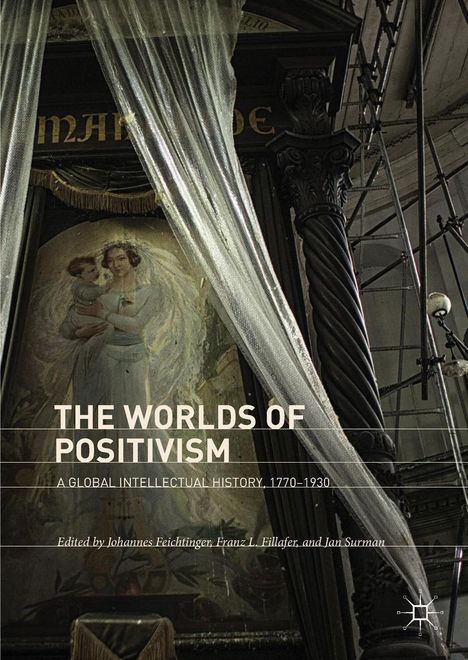The Worlds of Positivism, Gebunden
The Worlds of Positivism
- A Global Intellectual History, 1770-1930
(soweit verfügbar beim Lieferanten)
- Herausgeber:
- Johannes Feichtinger, Jan Surman, Franz L. Fillafer
- Verlag:
- Springer International Publishing, 02/2018
- Einband:
- Gebunden, HC runder Rücken kaschiert
- Sprache:
- Englisch
- ISBN-13:
- 9783319657615
- Artikelnummer:
- 7508694
- Umfang:
- 388 Seiten
- Nummer der Auflage:
- 18001
- Ausgabe:
- 1st edition 2018
- Gewicht:
- 631 g
- Maße:
- 218 x 154 mm
- Stärke:
- 30 mm
- Erscheinungstermin:
- 7.2.2018
- Hinweis
-
Achtung: Artikel ist nicht in deutscher Sprache!
Weitere Ausgaben von The Worlds of Positivism |
Preis |
|---|
Klappentext
This book is the first to trace the origins and significance of positivism on a global scale. Taking their cues from Auguste Comte and John Stuart Mill, positivists pioneered a universal, experience-based culture of scientific inquiry for studying nature and society¿a new science that would enlighten all of humankind. Positivists envisaged one world united by science, but their efforts spawned many. Uncovering these worlds of positivism, the volume ranges from India, the Ottoman Empire, and the Iberian Peninsula to Central Europe, Russia, and Brazil, examining positivism¿s impact as one of the most far-reaching intellectual movements of the modern world. Positivists reinvented science, claiming it to be distinct from and superior to the humanities. They predicated political governance on their refashioned science of society, and as political activists, they sought and often failed to reconcile their universalism with the values of multiculturalism. Providing a genealogy of scientific governance that is sorely needed in an age of post-truth politics, this volume breaks new ground in the fields of intellectual and global history, the history of science, and philosophy.
Biografie (Johannes Feichtinger)
Johannes Feichtinger (Dr. phil.) ist wissenschaftlicher Mitarbeiter am Institut für Kulturwissenschaften und Theatergeschichte (IKT) der Österreichischen Akademie der Wissenschaften. Seine Forschungsschwerpunkte sind Wissenschaftsgeschichte als Politik- und Kulturgeschichte, Geschichte Zentraleuropas, postkoloniale Theorie, Gedächtnis und Erinnerung.


